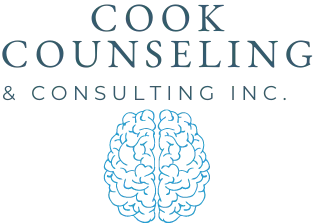Did you ever feel unloved or betrayed in your childhood? Chances are that you’re suffering from unhealed attachment trauma. A person’s bond with their primary caregiver (parents or guardian) plays an integral role in shaping the foundation of their attachment style, influencing how they form connections and navigate relationships throughout their lives. Attachment trauma occurs when the caregiver over- or under-loves a child, affecting their ability to trust other people and doubt every relationship in their lives. Keep reading to learn the five signs of unhealed attachment trauma.
1. Distancing Yourself from People
People who haven’t healed from past emotional wounds connected to their close relationships find it really to build and keep healthy relationships with others. They might find it difficult to trust people fully, always have a fear of abandonment, or feel really anxious when they get close to someone. As a result, these people may start distancing themselves from others, avoid commitment, become overly dependent on their partner, or get into relationships with partners who remind them of the unhealed attachment trauma.
2. Low Self-Esteem and Self-Worth
People with unhealed attachment trauma often struggle with low self-esteem and a diminished sense of self-worth. Their early experiences of inconsistent or inadequate caregiving can lead to internalized beliefs that they are unworthy of love, attention, or care. As a result, they might engage in self-sabotaging behaviors, remain in toxic relationships, or settle for less than they deserve.
3. Disordered Eating
Disordered eating is one of the most common coping mechanisms for individuals with unhealed attachment trauma. Trying to escape from the shadows of the past, these people use food to numb pain, regain a sense of control, and fill an emotional void. This can include anything from binge eating and restrictive eating to cycles of dieting and overeating. According to research, while most adolescents find comfort in their favorite snacks when confronting stress, others lose their appetite.
4. The Constant Need to Be in Control
People who might have felt vulnerable or helpless in childhood may suffer from control issues in adulthood. This happens if an individual has a domineering caregiver who doesn’t allow them to make their own decisions, has unrealistic expectations, or doesn’t care for them. Upon growing up, these individuals might display an excessive need to control various aspects of their lives, making them stressed and anxious all the time.
5. Jumping from One Relationship to Another
While it may seem the complete opposite of all signs of unhealed attachment trauma, it is very similar. Instead of distancing themselves from people, this person hops from one relationship to another to fill the attachment void in their hearts. They find a person, have fun with them, and leave them to themselves to get hurt. In simpler words, these people follow the mantra “Leave them before they leave you.” Though this may make them feel worthy or loved for some time, it can trigger acute depression and anxiety in the long run.
You’re Not Alone!
Recognizing the signs of unhealed attachment trauma and getting the care you need is essential for a content, wholesome life. If you can relate to any of these signs, it is important to remember that healing from attachment trauma is possible. All you need to do is face your demons. An easy way to do this is to find a therapist who can understand your unique case, help you heal, and lead you to cultivate healthy relationships while fostering a stronger sense of self-worth.
References
National Library of Medicine. (2015). Eating Disorders in Adolescence: Attachment Issues from a Developmental Perspective. Retrieved from National Library of Medicine.
ncbi.nlm.nih.gov/pmc/articles/PMC4530258/
National Library of Medicine. (2009). Insecure Attachment, Dysfunctional Attitudes, and Low Self-Esteem Predicting Prospective Symptoms of Depression and Anxiety During Adolescence. Retrieved from National Library of Medicine.

